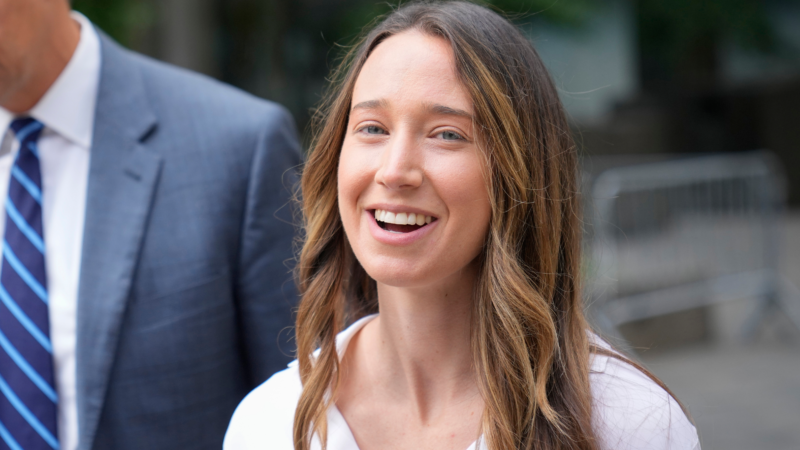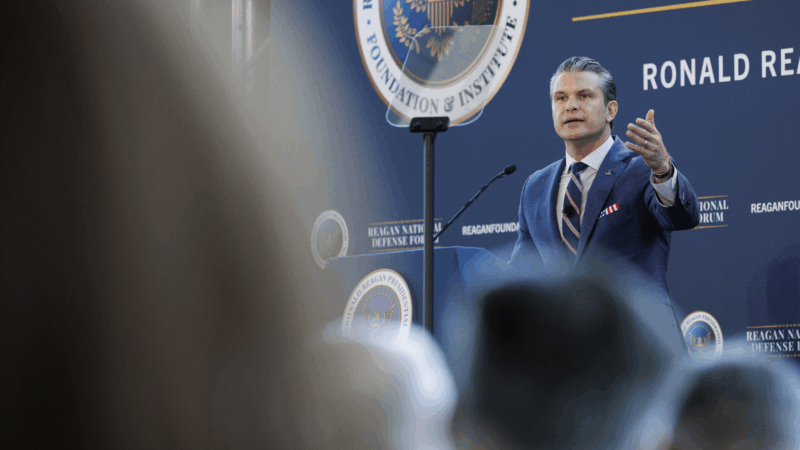Startup founder convicted of defrauding JPMorgan Chase of $175M by faking firm’s success
NEW YORK — Charlie Javice, the charismatic founder of a startup company that claimed to be revolutionizing the way college students apply for financial aid, was convicted Friday of defrauding one of the world’s largest banks, JPMorgan Chase, out of $175 million by exaggerating her customer base tenfold.
A jury returned the verdict after a five-week trial in federal court in Manhattan. Javice, 32, and her co-defendant, Olivier Amar, face the possibility of decades in prison in a case that has drawn comparisons to Theranos founder Elizabeth Holmes.
Javice appeared sullen at the defense table as the verdict was read. A lawyer placed her hand on Javice’s back. She brushed past reporters and didn’t speak as she left court.
Javice was in her mid-20s when she founded Frank, a company with software that promised to simplify the arduous process of filling out the Free Application for Federal Student Aid, a complex government form used by students to apply for aid for college or graduate school.
The company promoted itself as a way for financially needy students to obtain more aid faster, in return for a few hundred dollars in fees. Javice appeared regularly on cable news programs to boost Frank’s profile, once appearing on Forbes’ “30 Under 30” list before JPMorgan bought the startup in 2021.
JPMorgan executives testified that Javice told them she had more than four million clients and would have about 10 million by year’s end, but it turned out there were only about 300,000 customers and a list verifying her outsized claim was largely bogus.
Javice’s lawyer, Jose Baez, told the jury that JPMorgan knew what it was getting in the deal, accusing the bank of making up the fraud allegations because of buyer’s remorse after regulatory changes made the data it received in the deal useless to its hopes of gaining new young customers.
Defense lawyers asked the judge to set aside the verdict, arguing the evidence was not sufficient to sustain the conviction.
Judge Alvin K. Hellerstein said he would hear arguments on that next week and resolve a dispute over whether Javice and Amar must wear ankle monitors while awaiting sentencing on July 23. Javice’s lawyers argued the device will interfere with her new career: teaching Pilates classes for three or four hours a day.
Javice, who lived in Florida, has been free on $2 million bail since her 2023 arrest.
Javice and Amar, Frank’s chief growth and acquisition officer and effectively its No. 2, were convicted on all four counts in their indictments, including conspiracy, bank fraud and wire fraud charges that are each punishable by up to 30 years in prison.
“While Javice and Amar may have thought that they could lie and cheat their way to a huge payday, their lies caught up with them, and they now stand convicted by a jury of their peers,” Acting Manhattan U.S. Attorney Matthew Podolsky said in a statement.
Javice was among a number of young tech executives who vaulted to fame with supposedly disruptive or transformative companies, only to see them collapse amid questions about whether they had engaged in puffery and fraud while dealing with investors.
Javice founded Frank soon after graduating from the University of Pennsylvania’s Wharton School of Business, saying she was motivated by her own frustrations navigating the financial aid process.
Frank’s backers included venture capitalist Michael Eisenberg. The company said its offering, akin to online tax preparation software, could help students maximize financial aid while making the application process less painful.
JPMorgan became interested partly because of the potential it saw in Frank’s supposedly huge list of satisfied clients. The bank believed those future college graduates could become lifelong bank customers. But after buying the company, JPMorgan said it found evidence Javice had lied about Frank’s success.
Frank’s chief software engineer, Patrick Vovor, testified that Javice had asked him to generate synthetic data to support her claim that the company had more than 4 million users.
When Vovor asked if that was legal, prosecutors said, Javice and Amar assured him that it was — and told him they didn’t want to end up in orange prison jumpsuits. Vovor testified that he refused to help.
“I told them I would not do anything illegal,” Vovor told jurors.
Seeking to dent Vovor’s credibility, defense lawyers suggested he was resentful that Javice didn’t want to date him. He denied that.
Prosecutors said Javice ended up paying a college friend $18,000 to create millions of fake names with pedigree information. The results were sent to JPMorgan’s third-party data provider, but testimony showed that firm never checked to ensure the people were real.
“JPMorgan is not telling the truth,” Baez argued. “They knew the numbers.”
Light from satellites will ruin majority of some space telescope images, study says
Astronomers have long been concerned about reflections from satellites showing up in images taken by telescopes and other scientific instruments.
Defense Department is reviewing boat strike video for possible release, Hegseth says
In a speech on Saturday, Defense Secretary Pete Hegseth defended the strikes, saying: "President Trump can and will take decisive military action as he sees fit to defend our nation's interests."
Bama, Miami in, Notre Dame out and Indiana No. 1 in College Football Playoff rankings
Nobody paying attention for the past 24 months would be surprised to see Indiana – yes, Indiana – leading the way into this year's College Football Playoff.
McLaren’s Lando Norris wins first F1 title at season-ending Abu Dhabi Grand Prix
Red Bull driver and defending champion Max Verstappen won the race with Norris placing third, which allowed Norris to finish two points ahead of Verstappen in the season-long standings.
A ban on feeding pigeons ruffles lots of feathers in Mumbai
The pigeon population has exploded — a result of people feeding the birds. For some it's a holy duty and a way to connect to nature. Critics point to health risks tied to exposure to pigeon droppings.
UN humanitarian chief: world needs to ‘wake up’ and help stop violence in Sudan
The UN's top humanitarian and emergency relief official has told NPR that the lack of attention from world leaders to the war in Sudan is the "billion dollar question".








